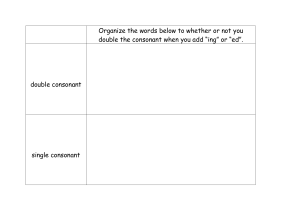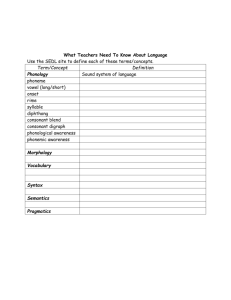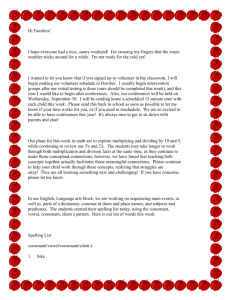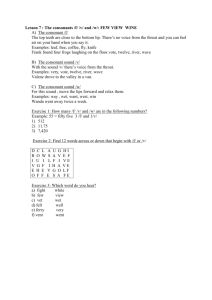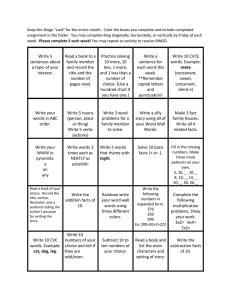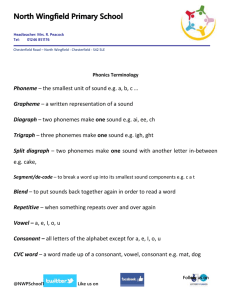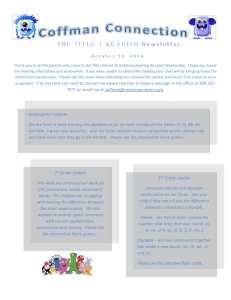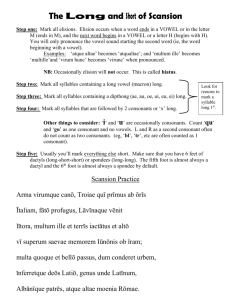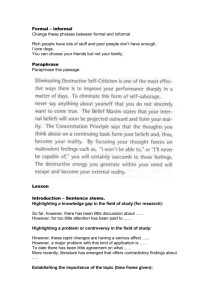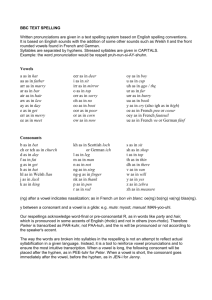Japanese Syllables – No. 2
advertisement
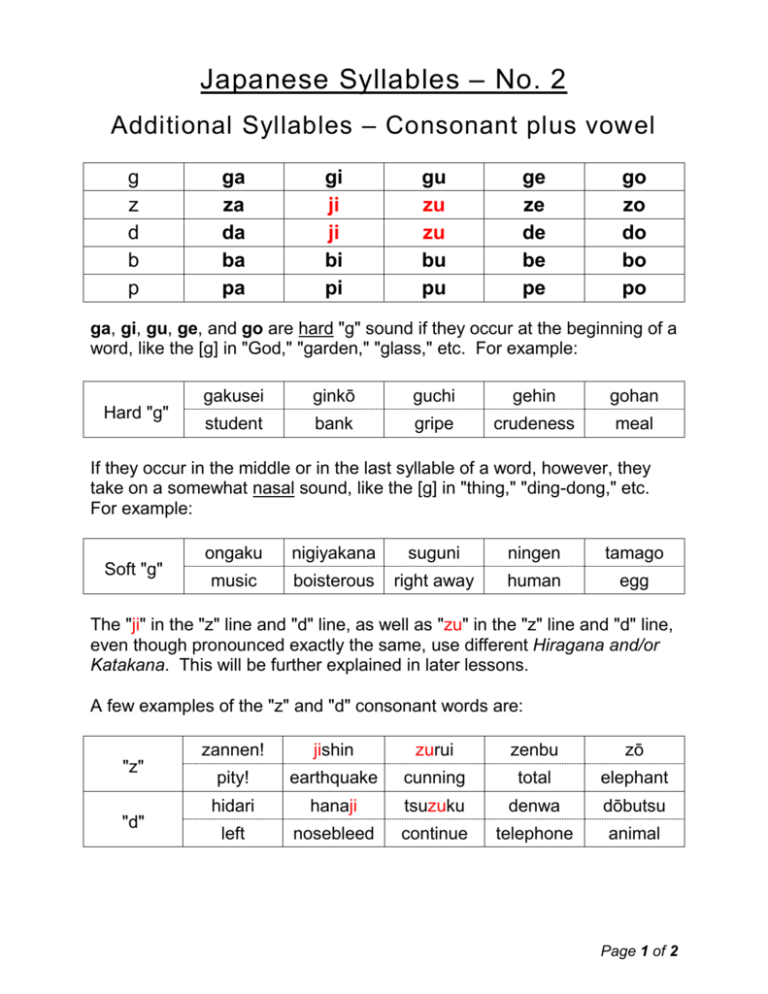
Japanese Syllables – No. 2 Additional Syllables – Consonant plus vowel g z d b p ga za da ba pa gi ji ji bi pi gu zu zu bu pu ge ze de be pe go zo do bo po ga, gi, gu, ge, and go are hard "g" sound if they occur at the beginning of a word, like the [g] in "God," "garden," "glass," etc. For example: Hard "g" gakusei ginkō guchi gehin gohan student bank gripe crudeness meal If they occur in the middle or in the last syllable of a word, however, they take on a somewhat nasal sound, like the [g] in "thing," "ding-dong," etc. For example: Soft "g" ongaku nigiyakana suguni ningen tamago music boisterous right away human egg The "ji" in the "z" line and "d" line, as well as "zu" in the "z" line and "d" line, even though pronounced exactly the same, use different Hiragana and/or Katakana. This will be further explained in later lessons. A few examples of the "z" and "d" consonant words are: "z" "d" zannen! jishin zurui zenbu zō pity! earthquake cunning total elephant hidari hanaji tsuzuku denwa dōbutsu left nosebleed continue telephone animal Page 1 of 2 A few examples of the "b" consonant words are: "b" bangohan yubi buchō fuben tonbo dinner finger manager inconvenience dragonfly A few examples of the "p" consonant words are: "p" kanpai! enpitsu tenpura kinpen tanpopo toast! pencil tempura vicinity dandelion All of the above will be explained in detail in class. You will also be introduced to many more example words containing these "consonant + vowel" sounds as explained above. Also, audio files will be provided, at request. © Ryoko Popjoy Page 2 of 2
